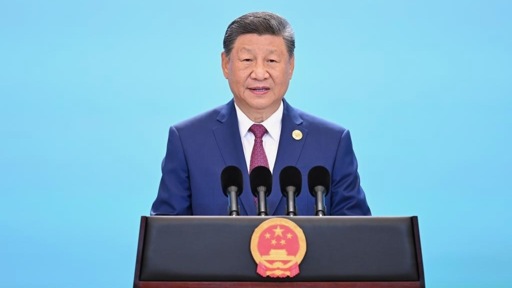The 25th Heads of State Summit of the Shanghai Cooperation Organization (SCO) concluded in Tianjin, China, on Monday, September 1, with the adoption of the Tianjin declaration, which calls for a peaceful and equitable global governance and increased South-South cooperation.
The summit highlighted the “fluid and chaotic global situation” created due to the unilateral actions of some countries in the West. It noted that the fast changing global scenario has a profound effect on all aspects of life.
In this context, the SCO adopted a strategy for the development of the block in the next 10 years, reiterating its faith in international law and the UN charter.
This year’s summit was the group’s largest with the participation of 26 nation states and 10 global organizations. The SCO has garnered renewed interest because of the tariff war waged by US president Donald Trump, which has forced new alignments in global politics.
The Tianjin declaration condemned all forms of unilateral actions, including the tariff wars and called for a multilateral, equitable, rules-based and just world order.
All SCO members also condemned Israel’s war in Gaza which has killed over 70,000 Palestinians in nearly two years and demanded the immediate end of the war and the creation of an independent Palestinian state.
The summit was attended by Chinese President Xi Jinping, Russian President Vladimir Putin, Indian Prime Minister Narendra Modi, Iranian President Masoud Pezeshkian, Pakistani Prime Minister Shehbaz Sharif, and leaders of the Central Asian republics, among others.
The original “Shanghai Five”, which was formed in 1996 with China, Russia, Kazakhstan, Kyrgyzstan and Tajikistan became the SCO in 2001, with Uzbekistan joining the grouping.
From the original six, its membership has now grown to 10, with India, Pakistan, Iran, and Belarus joining as members in later years. SCO members today represent nearly half of the world’s population and a quarter of the global economy.
The SCO+ at Tianjin was attended by observer states and 14 dialogue partners, including Turkish President Recep Tayyip Erdoğan.
Global Governance Initiative
Speaking during an informal session on Sunday, Chinese President Xi Jinping noted that the SCO summit aims to boost unity and cooperation among SCO members, pooling the strength of the global south and pushing for more progress of human civilization.
During his formal address on Monday, Xi emphasized that the SCO “should advocate an equal and orderly multipolar world and a universally beneficial and inclusive economic globalization, and make the global governance system more just and equitable.”
To achieve a just and equitable global governance, Xi proposed his Global Governance Initiative (GGI) to the SCO+. Xi reiterated the five basic principles of the GGI:
Sovereign equalityInternational rule of lawMultilateralismPeople-centered approachFocus on taking real actions
SCO members must seek common ground while putting aside differences, pursue mutual benefit and win-win results, champion openness and inclusiveness, uphold fairness and justice and strive for real results and high efficiency, Xi underlined.
Xi hoped the SCO Development Bank would be established soon and announced around 281 million US dollars in grants to member states within the year and another 1.4 billion US dollars over the next three years.
Xi also noted that China’s bilateral trade with SCO members is more than USD 500 billion as of now, with its total investments in these countries topping USD 84 billion and hoped that this would increase further with growing connectivity and cooperation.
Speaking on Monday, Russian President Putin also supported the GGI claiming that by following it, the SCO can become a leader in the “effort to form a more just and equitable global governance system.”
The need for a just and equitable global order has become more relevant because some countries “still do not abandon their pursuit of dominance in international affairs,” Putin underlined.
Putin also announced that Russia will be hosting an Intervision song contest where participants from Asia, Africa and Latin America will perform as an alternative to Eurovision. The Intervision is aimed at “promoting universal values” which need to be brought back on the global agenda.
Several other countries supported the call for GGI. Speaking during the summit, Iranian President Masoud Pezeshkian also called for a just and equitable global governance, emphasizing that SCO members should pursue peace-building and financial integration as a priority.
Citing the example of the recent Israeli-US aggression against his country, Pezeshkian noted the need for international cooperation rooted in justice and mutual respect.
In order to reduce the effects of unilateral US sanctions, Pezeshkian proposed SCO special accounts and settlement mechanisms with the objective of reducing dependence on the US dollar in international trade and enhanced trade settlement in national currencies.
The Tianjin declaration also outlined programs to enhance cooperation among the member countries on issues such as drug trafficking, counter terrorism, artificial intelligence and environment, among others.
The post Xi Jinping proposes a new global governance framework based on sovereignty and multilateralism at SCO summit appeared first on Peoples Dispatch.
From Peoples Dispatch via this RSS feed


